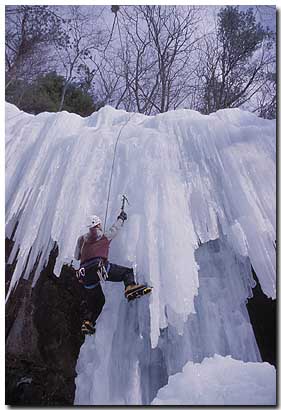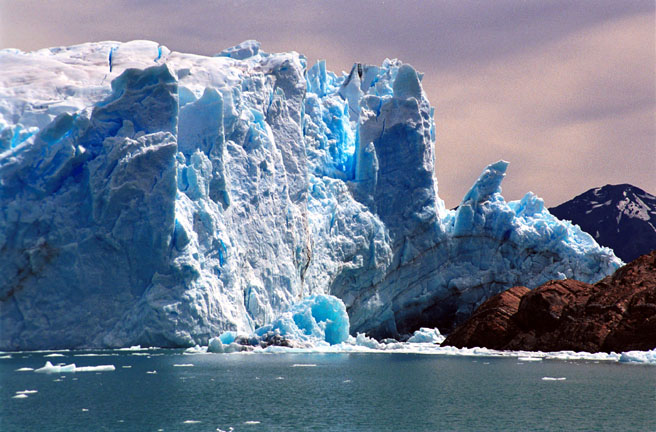ice
caps and psychrophiles
 Psychrophiles
have antifreeze enzymes called exopolymers, also known as organic
goop, which allow
them to live at extremely cold temperatures. This organic goop is
like
a mucous that surrounds the organism keeping them in a fluid enviorment
and protecting them from freezing and against ice crystal damage of
their cell walls. Few people actually realize that 20
percent of our
own planet is frozen. This provides a niche for
the psychrophilic organisms to thrive. Up until the last 20
years, there was some doubt as to whether these organisms actually
existed. Now though, there are ongoing research projects in the
artic area studying the behavior of cold-adapted bacteria, their
enzymes, exopolymers, and e
Psychrophiles
have antifreeze enzymes called exopolymers, also known as organic
goop, which allow
them to live at extremely cold temperatures. This organic goop is
like
a mucous that surrounds the organism keeping them in a fluid enviorment
and protecting them from freezing and against ice crystal damage of
their cell walls. Few people actually realize that 20
percent of our
own planet is frozen. This provides a niche for
the psychrophilic organisms to thrive. Up until the last 20
years, there was some doubt as to whether these organisms actually
existed. Now though, there are ongoing research projects in the
artic area studying the behavior of cold-adapted bacteria, their
enzymes, exopolymers, and e ven viruses in seeply frozen sea ice.
With the much debated threat of global climate warming, this niche of psyrchrophiles could face extinction. Researchers are striving to
learn their secrets for success and survival in this region. Because
there are so many practical applications for psychrophiles, there
is a lot of research on the psychrophiles being done. There is
work on creating a genetic database for all the psychrophiles that are
known to date.
ven viruses in seeply frozen sea ice.
With the much debated threat of global climate warming, this niche of psyrchrophiles could face extinction. Researchers are striving to
learn their secrets for success and survival in this region. Because
there are so many practical applications for psychrophiles, there
is a lot of research on the psychrophiles being done. There is
work on creating a genetic database for all the psychrophiles that are
known to date.
BACK HOME